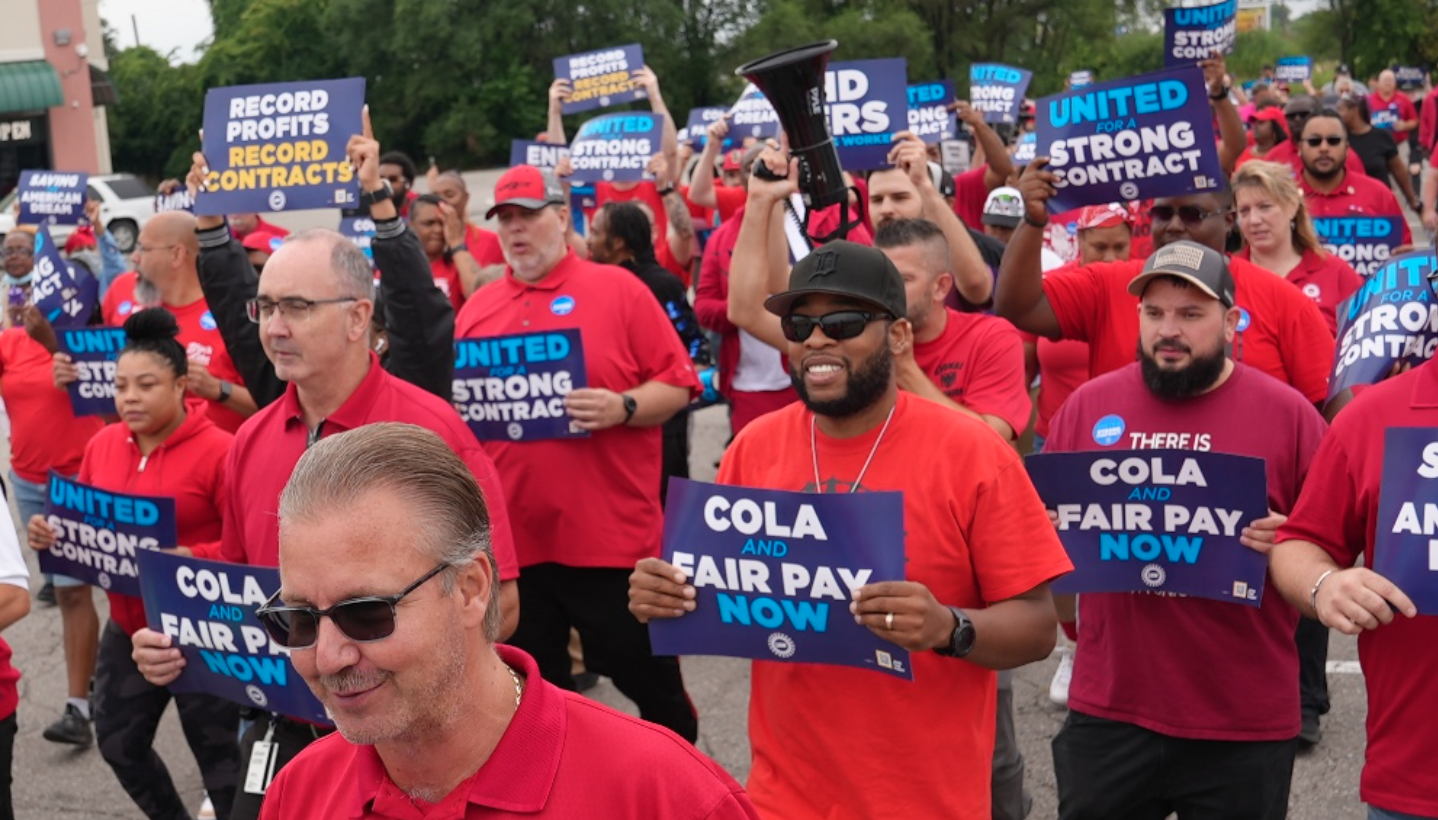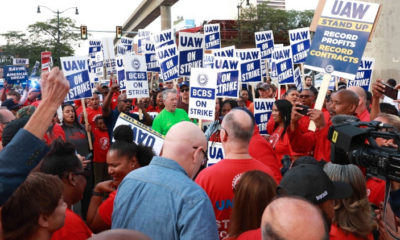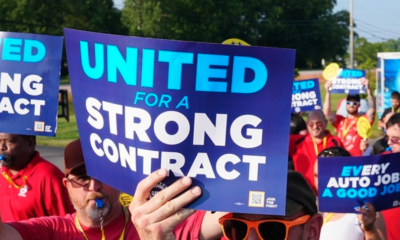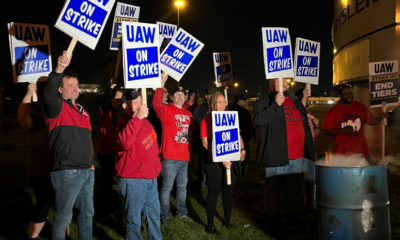NEWS
UAW Rejects Automaker Counteroffers As Strike Looms at Big 3
Published
8 months agoon

Courtesy of @UAW/X
The United Auto Workers union is gearing up for a strike against Detroit’s “Big 3” automakers — General Motors, Ford and Stellantis — when their contracts expire on Sept. 14.
UAW, which represents nearly 150,000 auto workers at the Big 3, is demanding double-digit wage increases, more paid time off, and increased retiree pay, along with the restoration of benefits the workers once had, including defined benefit pensions, retiree medical benefits and cost of living adjustments.
Last week, the union filed unfair labor practice charges with the National Labor Relations Board, claiming GM and Stellantis are not bargaining in good faith. The move makes a strike seem all the more likely at those two companies, if not all three.
The latest counteroffers presented by Ford and GM have been rejected by the union, which continues to await a counteroffer from Stellantis.
“After refusing to bargain in good faith for the past six weeks, only after having federal labor board charges filed against them, GM has come to the table with an insulting proposal that doesn’t come close to an equitable agreement for America’s autoworkers,” Fain said in a statement responding to GM’s offer.
“GM either doesn’t care or isn’t listening when we say we need economic justice at GM by 11:59pm on September 14th,” Fain said. “The clock is ticking. Stop wasting our members’ time. Tick tock.”
According to UAW, GM, Ford and Stellantis made a combined $21 billion in profits in the first six months of 2023, after raking in $250 billion in North American profits over the last decade.
“So what have the Big 3 done with these staggering profits? Instead of rewarding the workers who spent long hours wrecking their bodies on the line to make these profits possible, the Big 3 have funneled billions into stock buyback schemes that artificially inflate the value of company shares,” UAW President Shawn Fain said in a video message to members last month.
“Record profits mean record contracts,” Fain said.
“Yes, we’re demanding double-digit pay raises,” the UAW said in a statement. “Big Three CEOs saw their pay spike 40 percent on average over the last four years. We know our members are worth the same and more.”
The union is also demanding the end of lower-paid employment tiers, a concession the Teamsters recently won in their new contract with UPS, a deal that was reached under the threat of a strike.
UAW is also seeking the right to strike over plant closures, and the “working family protection program,” which would have automakers pay workers to do community service work if their company leaves town.
“While I don’t believe that a true ‘defined benefit’ pension is a likely outcome of this strike, it signals that employees, especially those in unions, are willing to demand more from their employers,” said Bradley Schurman, founder and CEO of the demographic strategy firm, The Super Age, which helps public and private-sector organizations navigate disruptive population change.
“The U.S. should buckle up for many more strikes in the coming years, thanks to a tight labor market and a growing economy. This will mean disruptions across the board, from getting a new car, taking a flight, and even getting a cup of coffee,” Schurman said.
“The U.S. hasn’t experienced a labor market quite like this since the end of World War II, when union membership soared — it peaked in 1954. During this period, American workers experienced less wage inequality and better benefits from their employers, including corporate pensions,” Schurman said.
TMX contributed to this article.
More From Auto Overload
-


Dump Truck Rollover Blocks Exit, Spills Dirt Onto Highway In…
-


UAW ‘Stand Up’ Strike Enters Fourth Day As Work Stoppages…
-


Car hit by flying tire that came off of a…
-


Cars Line The Highway For Black Friday Outlet Mall Shopping…
-


UAW Rejects Counteroffers From Automakers As Strike Deadline Nears
-


Build your own Ferrari Daytona (in Legos): Ultimate speed machine…
-


US Crude Oil Prices Top $90 For The First Time…
-


Dangerous Freeway Onramp In San Dimas, California Causes SUV To…
-


Tesla Slams Through Wall And Into Pool, Three Occupants Rescued
-


More: Utah Teen Causes Head-On Collision Involving Three Cars, Leaving…
-


Regulators Seek Recall of 52 Million Defective Airbag Inflators Made…
-


UAW Strikes Begin at Big 3 Automakers

